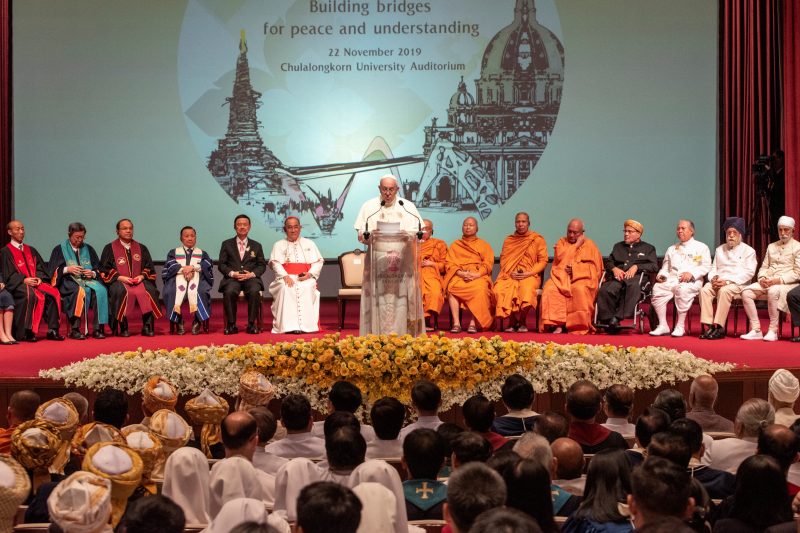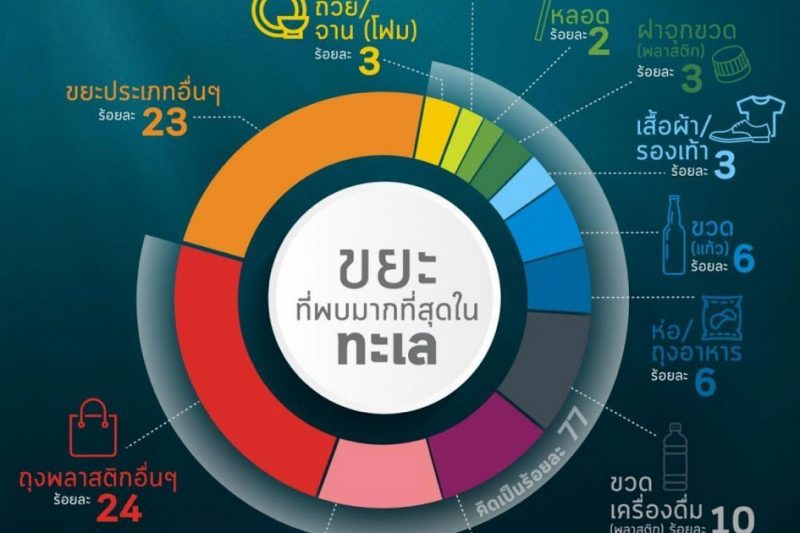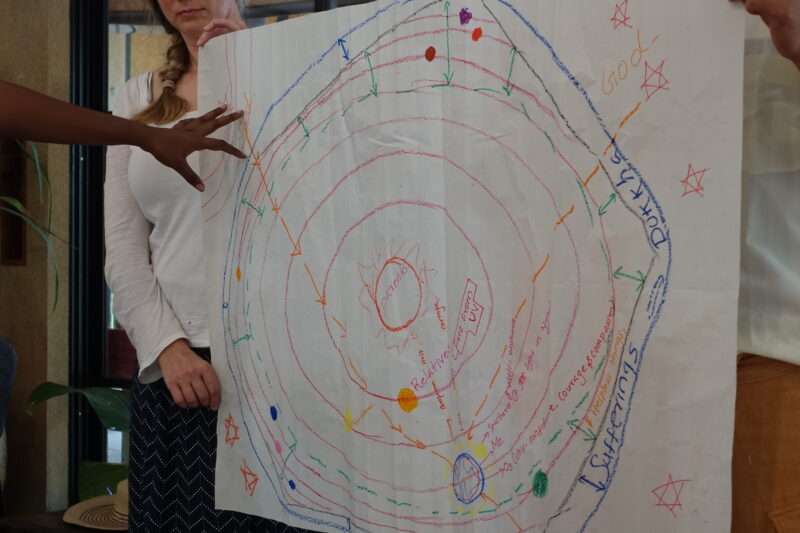Chula project helps improve quality of ground and surface water in Nan
Over the past few decades, farmers from all regions of the country have used so many chemicals that they have accumulated in major water sources, especially in groundwater, which is a source of drinking water for the local population.
In Nan province, especially in remote and valley areas, ground and surface water sources are likely to be contaminated by agricultural chemicals, such as pesticides, and heavy metals (such as lead and cadmium). Naturally occurring minerals (iron, fluorides and others) also lead to water “hardness”.
Research by Chulalongkorn University has found that most of the groundwater in the Chiang Mai-Lamphun Basin had a higher level of fluorides than the standard recommended for consumption, which is no more than 0.7 milligrams per liter. Excessive levels of fluoride can affect the health of those consuming groundwater over a long period.
Assoc Prof Patiparn Punyapalakul, PhD, says that “improving water quality through pre-consumption treatment is vital so that residents can safely drink from natural sources and thus improve the quality of their lives”.
This is why a project initiated by Chulalongkorn University has set out to apply a combination of variables to improve water quality from ground and surface water sources in Nan — the area that Assoc Prof Patiparn is responsible for.
The project focuses on developing a prototype system for treating ground and surface water for consumption. To determine potential methods and guidelines for producing potable water, tests need to be done on the quality of the ground and surface water in the area in question.
Studies and experiments were carried out on bone charcoal production via a carbonization process to remove fluorides; the efficacy of fluoride removal and the release of organic compounds from bone charcoal produced by the laboratory; as well as the absorption of fluorides and other contaminants through the use of bone charcoal and activated charcoal as an intermediate treatment, using water from the area.
A treatment system to remove fluorides and other contaminants was designed and built at the point of use. The efficacy of the process was evaluated through data collected on site, and improvements were considered in order to be able to apply it for use over a wider area.
Guidelines for knowledge sharing, bone charcoal production technology and systems to improve the quality of potable groundwater have been established. These include the management and conservation of natural water resources for the community, so that residents can utilize water resources safely and sustainably.
The research led to the production of a prototype in the field and laboratory: a combined-medium water filtration machine to reduce the effects of fluoride on groundwater for small rural communities.
Public benefits of the project have included technology transfer and public training in real-life situations. Local people have learned how to produce bone charcoal and maintain the combined water filtration system, and to monitor and assess the initial health and economic impacts of the device.
Other components of the project include:
- A study of the changes to primary health risks of people in Ban Mai Nai Fun village, Sanian sub-district, Muang Nan district of Nan;
- Analysis of the cost-benefit and maintenance guidelines of the groundwater filtration system installed at Ban Mai Nai Fun;
- Research studies and the monitoring of water quality in natural sources, which can be used as a database for policy planning for solving environmental pollution problems.
The project has so far benefited 394 people from 106 households in Ban Mai Nai Fun in Sanian sub-district of Muang district in Nan province. Benefits have also spread beyond the province to include students and teachers at Ban Huai Sai School in Huai Yap sub-district of Ban Ti district in Lamphun, as well as those at Ban Buak Khang School in Buak Khang sub-district of San Kamphaeng district of Chiang Mai.
Project Cooperation Groups
- Faculty of Engineering, Chulalongkorn University
- Office of Student Affairs, Chulalongkorn University
- Center of Excellence on Hazardous Substance Management, Chulalongkorn University
- National Nanotechnology Center
- Rakkaew Foundation
- Ban Mai Nai Fun Village, Sanian sub-district, Muang district, Nan
- Ban Mai Nai Fun School, Sanian sub-district, Muang district, Nan
- Ban Buak Khang School, Buak Khang sub-district, San Kamphaeng district, Chiang Mai
- Ban Huai Sai School, Huai Yap sub-district, Ban Ti district, Lamphun
Others
Chula as World Health Organization Collaboration Centers
WHO has designated multiple divisions of Chulalongkorn University, including Faculty of Medicine, Thai Red Cross Society, College of Public Health Sciences, Faculty of Economics, as its Collaborating Centers for different areas





